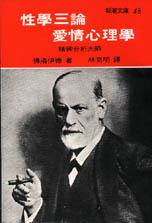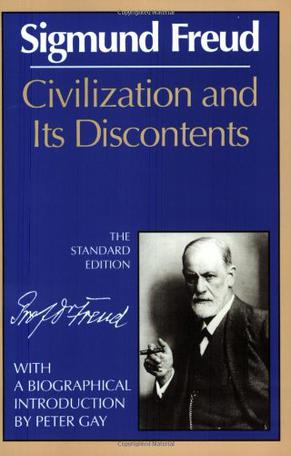-

性學三論:愛情心理學
「性學三論」乃是佛洛伊德對人性的了解最具創意、最永恆的貢獻之一,其革命性與重要性可與「夢的解析」等量齊觀。在本書中佛氏道出了對人性與人類行為動機的主要看法。第一篇「性變態」詳論同性戀、性錯亂、及心理症患者的性衝動。第二篇詳細分析幼兒性慾的來源、目的及其表達方式。第三篇「思春期的改變」,包含佛氏著名的原慾理論的經典。它不但是變態心理學學者們的至寶,更且由於它對人性發展作了有系統和完整的探討,也是心理學家、人類學家、社會學家以及一般知識份子所不可不讀的名著。「愛情心理學」包含三篇文章,其中對男人戀愛的畸形心理、性無能的原因,以及處女的謎樣的含意,都有精闢的分析,讀來令人回味無窮。 -

狼人的故事
弗洛伊德的案例分析著作主要有七篇,比如上世纪八十年代在中国“ 文青”人手一册的《少女杜拉的故事》就是其中之一。至于其他案例,一直没能译介过来。本书收的《狼人的故事》、《鼠人的故事》和《小汉斯的故事》三篇就是首次在内地出版(台湾去年出版了不同的译本)。这些案例涉及的患者包括从神经官能症到精神分裂症的多类病人,其症状在普通人看来也是相当奇特的。比如《鼠人的故事》的主人公,就经常感觉到老鼠从他的肛门钻了进去,因此痛苦不堪。弗洛伊德在案例分析过程中展现出非同寻常的洞察力,他对精神分析的深刻理解也是我们取之不尽的思想资源。 -

文明及其不满
《文明及其不满》英语规范、标准,行文流畅,适合文理各科大学生、研究生及广大英语自学者学习之用。“大学生英语文库”是一套面向中国大学生的英语系列读物,各本均为注释性读本,有助于通过研读文化经典,提高人文素养。《文明及其不满》是奥地利著名精神病学家、精神分析学派心理学创始人弗洛伊德晚年的作品之一。于1929年首次出版。作者在书中指出,人的本性是攻击性,以自我为中心,不断追求本能欲望的满足,而社会的发展则要求对个体的这种本能加以约束和控制。因而文明正是在个体对自由的追求和社会对遵从的要求这一永恒的对立和冲突中得以由低级向高级不断演进。 -

Introductory Lectures on Psychoanalysis
In reasoned progression he outlined core psychoanalytic concepts, such as repression, free association and libido. Of the various English translations of Freud's major works to appear in his lifetime, only one was authorized by Freud himself: The Standard Edition of the Complete Psychological Works of Sigmund Freud under the general editorship of James Strachey. Freud approved the overall editorial plan, specific renderings of key words and phrases, and the addition of valuable notes, from bibliographical and explanatory. Many of the translations were done by Strachey himself; the rest were prepared under his supervision. The result was to place the Standard Edition in a position of unquestioned supremacy over all other existing versions. Newly designed in a uniform format, each new paperback in the Standard Edition opens with a biographical essay on Freud's life and work -along with a note on the individual volume-by Peter Gay, Sterling Professor of History at Yale. -

Civilization and Its Discontents
在线阅读本书 In what remains one of his most seminal papers, Freud considers the incompatibility of civilisation and individual happiness, and the tensions between the claims of society and the individual. We all know that living in civilised groups means sacrificing a degree of personal interest, but couldn't you argue that it in fact creates the conditions for our happiness? Freud explores the arguments and counter-arguments surrounding this proposition, focusing on what he perceives to be one of society's greatest dangers; 'civilised' sexual morality. After all, doesn't repression of sexuality deeply affect people and compromise their chances of happiness? --This text refers to the Paperback edition. -

Freud
Sigmund Freud (1856-1939) revolutionized the way in which we think about ourselves. From its beginnings as a theory of neurosis, Freud developed psycho-analysis into a general psychology, which became widely accepted as the predominant mode of discussing personality and interpersonal relationships.